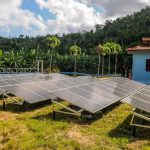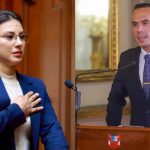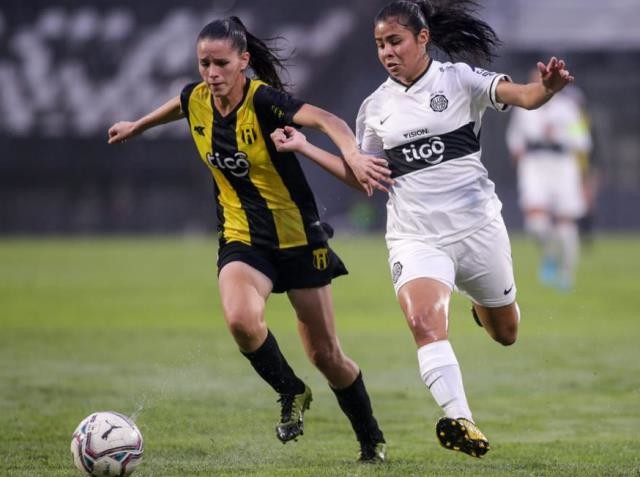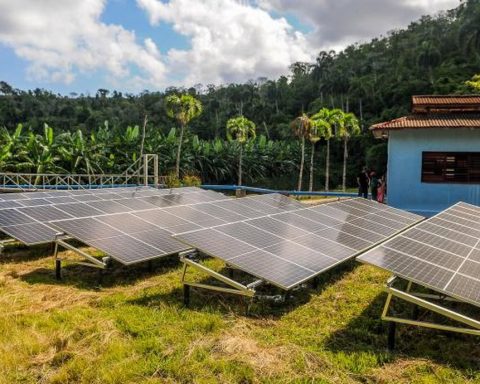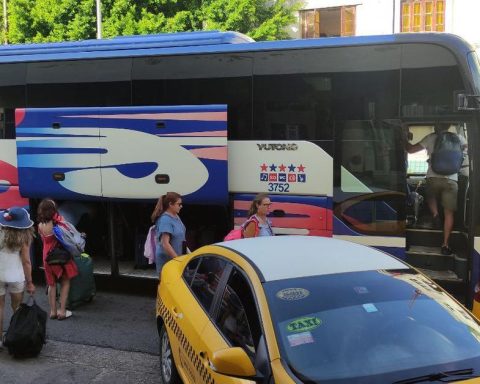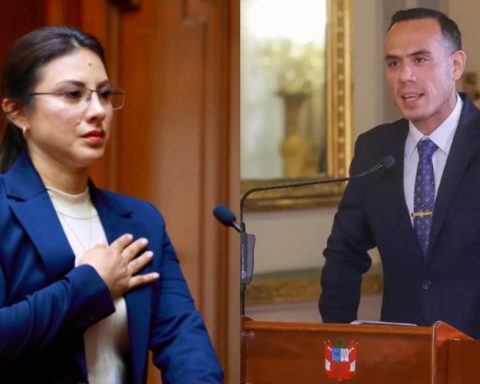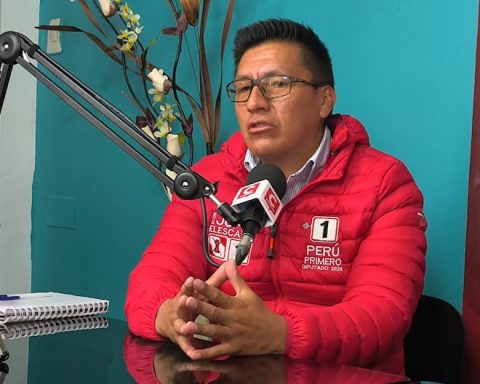“We are combining the two great passions that we Uruguayans have: soccer and politics,” said the mayor of Lavalleja, Mario García, before his fellow mayors. The community chiefs of the 19 departments listened to the executive secretary of the Juntos 2030 Corporation, a civil association that was formed to organize the World Cup between Uruguay, Argentina, Chile and Paraguay, at the Mayors’ Congress held in Flores.
The Chilean, Michael Boys, exposed the demands of FIFA so that the cities can be pre-candidates to host. He told the community leaders that he “is convinced” that a World Cup can be organized in the region, but for that the cities must have an interest in working to meet FIFA’s demands.
Boys arrived at the congress accompanied by the National Sports Secretary, Sebastián Bauzá, and the president of the Uruguayan Football Association (AUF), Ignacio Alonso. The two considered that a World Cup based in those four countries will open up a series of possibilities for the cities, beyond the soccer matches that are played.
García, mayor of Lavalleja, and Ana Bentaberri, mayor of San José, made clear their interest in getting to work so that their departments could be the headquarters.
But in addition, the presentation, which included the conditions and benefits, raised doubts in some mayors. The mayor of Paysandú, Nicolás Olivera, wondered if the political decisions that are made on these pre-candidacies transcend the mandate periods.
Olivera also consulted what degrees of certainty the Juntos 2030 Corporation needs about the possibilities that each city has. The executive secretary of the Juntos 2030 Corporation summarized his responses as follows: “It is a State commitment.” Boys explained that in the pre-candidacies contracts will be signed that will have to be fulfilled beyond the current government.
“What investment conditions or possibilities are we considering to carry it out?” asked economist Mauricio Zunino, director of Financial Resources for the Municipality of Montevideo, who was representing Carolina Cosse.
Zunino recalled that the capital’s administration organized the finals of the Copa Libertadores, the Copa Sudamericana and the Women’s Libertadores together with the AUF and Conmebol, however, he said: “I want to think that we are talking about a substantially larger event, how Does Uruguay have to insert itself beyond the Centenario stadium?” he wondered.
“The possibilities are certain,” Bauzá replied, explaining that the four organizing countries plan to organize the World Cup “in 14 or 16 venues” and will divide where each game will be played, although the final will be played in Uruguay, as a tribute to the 100th anniversary of the World Cup that was held in 1930.
Bentaberri, the mayor of San José, said that she will get to work so that a city in her department is a pre-candidate for headquarters. For this reason, she asked for “close” advice from the AUF and the National Sports Secretariat to find out “what are the strengths” that the department has to “address such a proposal.”
The mayor of Lavalleja also projected Minas as a possible candidate. “We have to start sizing, because we have no idea, of everything that this generates. Surely Lavalleja will apply, we seriously think about starting this job to apply ”, he pointed out.
The mayors of Canelones and Salto were more pessimistic regarding the possibilities of their departments being headquarters. Yamandú Orsi, from Canelones, asked to see the proposal “with a long flight” and proposed that the Congress of Mayors strengthen, for example, some region of the country through an agreement. However, Orsi had already stated some time ago that Maldonado would be a good location to play World Cup matches.
“It is obvious that there are not 19 applications, but we all want to. I offer an airport, I don’t have a stadium,” Orsi said between laughs and added: “This is a national issue. Here there is a fundamental actor to analyze this that is the Congress of Mayors. I invite myself and I invite you to think about it in a country key. Give the push to a region of the country. I am tempted to say Canelones is running, but this must be done more with a long flight”.
His colleague from Salto, Andrés Lima, said that in his department “a stadium cannot be projected” and asked: “How can we provide information to FIFA about our possibilities?”
“There are a number of interesting opportunities that arise around the organization of a soccer World Cup. We have to send a message of optimism to the public”, considered the president of the AUF, Ignacio Alonso. For the Juntos 2030 Corporation, the countries will benefit from tourism, country recognition, job creation, increased investment and infrastructure development projects, education, urban planning and transportation.
FIFA conditions
Boys briefly explained the conditions set by FIFA for a country or, in this case, a corporation of countries, to host a Soccer World Cup.
The requirements include stadiums with a capacity of 40,000 seated people, training fields and base camps where the teams stay, which can be public or private facilities where players can stay up to 45 days. In this sense, Boys remarked that the pre-candidate cities will not necessarily be venues for matches, but rather to host soccer teams or fans.
There is also a requirement for hotel availability, which may include cruise ships, for available airports “within a reasonable range” of distance so that teams can move from one country to another. “In the evaluation, 70% is the infrastructure and 30% is the income and expenses,” said Boys.
Between May 15 and July 15, the municipalities can request the specific requirements to be pre-candidates to host the headquarters of the World Cup. After July 15, they will be able to present their candidacies with stadiums, base camps or training camps.
In October, the pre-candidacy of the municipalities to FIFA will be presented and the international organization will begin to visit, learn about and review the conditions of the postulated places.
“I hope they are part of this dream,” concluded Bauzá.






